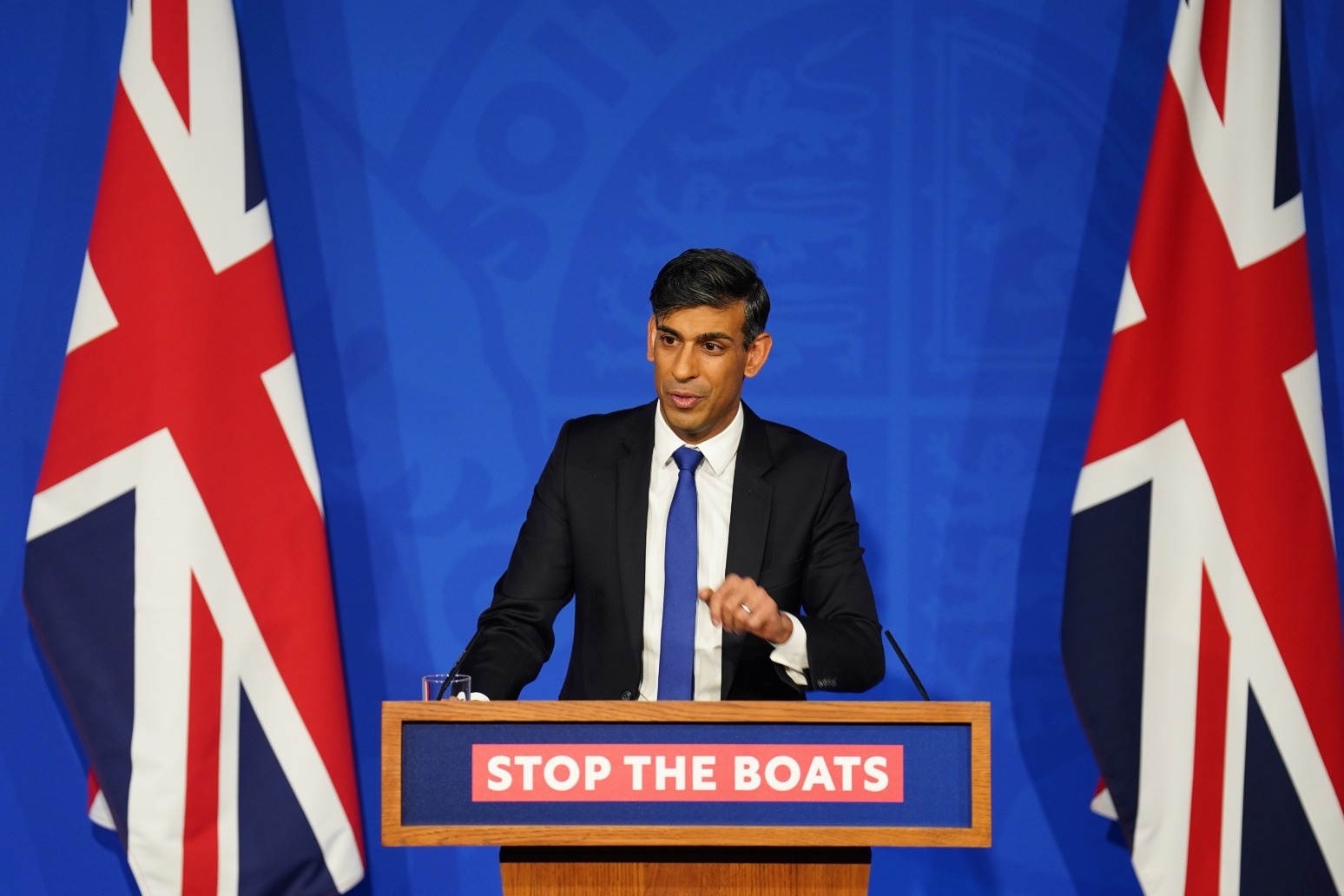
Fraught week for Rishi Sunak as warring Tory factions mull over his Rwanda Bill
Conservative MPs are meeting today to decide whether to back the legislation tomorrow
Rishi Sunak faces the most perilous week of his leadership as factions in his bitterly divided Conservative party weigh up whether to derail his Rwanda legislation and his authority with it.
The Prime Minister faces a threat from both the right and left as the tribes hold separate meetings on Monday to consider if they will back the flagship Bill in a crunch vote on Tuesday.
Hardline Brexiteers from the European Research Group and other factions on the Conservative right will first hold a summit on the legislation tasked with reviving his asylum policy.
Veteran MP Sir Bill Cash will present the findings of his so-called “star chamber” of lawyers, but he has already signalled they do not believe the proposed law is fit to get the grounded £290 million scheme up and running, as it stands.
Then the more moderate wing of One Nation Conservatives will hold a separate evening meeting in Parliament before releasing a statement on their judgment.
Mr Sunak and top ministers including Foreign Secretary Lord Cameron have been engaging with MPs over the weekend in order to quell any rebellion.
Home Office modelling, seen by the Times, that suggests 99.5% of individual legal challenges submitted by asylum seekers will fail to block their deportation under the Bill, will be used by the Government to counter claims by right-wing critics.
The Prime Minister has tried to find a middle ground in response to the Supreme Court finding that plans to send to Rwanda asylum seekers who arrive on small boats are unlawful.
But some on the right believe it does not go far enough in casting aside international law, while moderates have concerns about its legal impact and about ordering courts to deem Rwanda a “safe” country.
Mr Sunak has told MPs the Conservatives must “unite or die”, but it is unclear whether they will heed his warnings, as some of his possible successors court limelight.
Robert Jenrick, who resigned as immigration minister over the legislation, told the BBC on Sunday he will not support the “weak Bill that will not work”.
But he said “we can fix this”, raising the possibility he could abstain along with other opponents before trying to amend the legislation at a later stage.
That could spare the Prime Minister a damaging defeat during a perilous week that begins with a grilling at the official coronavirus inquiry.
Mark Francois, chairman of the European Research Group, has invited the New Conservatives and the Common Sense and Conservative Growth groups to hear Sir Bill’s “forensic examination” at the Commons meeting before they have a “collective discussion” about their approach.
Sir Bill wrote in the Sunday Telegraph that the Bill is not “sufficiently watertight to meet the Government’s policy objectives”, but suggested it could be amended and fixed.
Tuesday is the first opportunity for the Commons to vote on the legislation, in what is called a second reading. A government Bill has not been defeated at this stage since 1986.
Far more common are defeats and amendments at later stages, but Mr Sunak only needs a rebellion of 28 Tories to see his majority destroyed as Labour will vote against it.
A defeat would shred the Prime Minister’s authority, but One Nation chairman Damian Green said any Conservative who thinks they should change leader is “either mad, or malicious, or both”.
Conservative former solicitor general Lord Garnier, who has done the legal work for that group, has compared the Bill with ruling “all dogs are cats” by claiming Rwanda is safe.
He plans to oppose it in the Lords, where Mr Sunak’s battle is likely to be even greater, and has described it as making both political and legal “nonsense”.
A legal assessment for the Government has given it only a “50% at best” chance of successfully getting flights to Kigali off next year as result of interim injunctions from Strasbourg.
But Cabinet minister Michael Gove said on Sunday the Bill is “legally sound” and called it “tough and robust” while signalling an openness to possible improvements.
However, a No 10 source echoed Mr Sunak by saying there is only an “inch” between the current policy and an overriding of elements of the European Convention on Human Rights, that he says would see the Rwandan government reject it.
“This is the strongest possible piece of legislation to get Rwanda operational,” they added.
Published: by Radio NewsHub